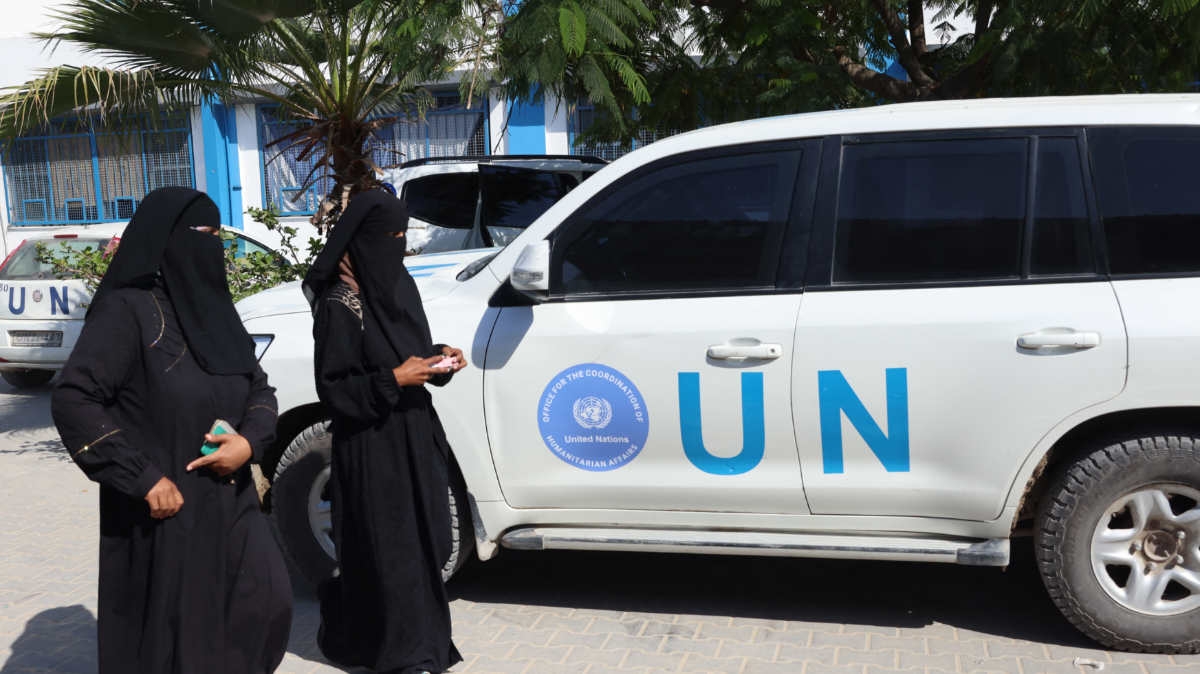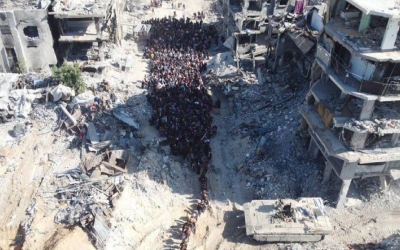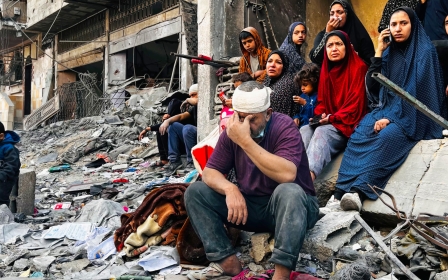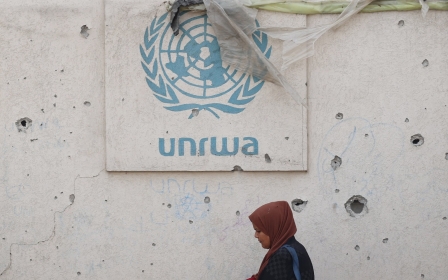US says Israel hasn't done enough to reverse Gaza humanitarian crisis since its warning

The US warned on Tuesday that it has not seen enough progress by Israel to allow humanitarian aid into the Gaza Strip, despite senior Biden administration officials warning the decline of aid entering the enclave could result in the suspension of arms transfers to Israel.
The warning came a day after Israel’s Knesset voted to ban the UN Palestinian Relief Agency (Unrwa) from operating in occupied Palestine, and Israel. State Department spokesman Matthew Miller said the US was “deeply troubled” by the bill.
“As the Secretary [Antony Blinken] said in his letter, and as I reiterated yesterday, there could be consequences under US law and US policy for the implementation of this legislation,” Miller said.
On 13 October, Blinken and US Secretary of Defence Lloyd Austin sent a letter to senior Israeli officials outlining steps the Biden administration expected it to take to reverse the deteriorating humanitarian situation in Gaza.
The letter gave Israel a 30-day ultimatum to enact changes or risk a suspension of arms transfers. The warning was sparked by a massive drop in humanitarian aid supplies entering Gaza. In July, 4,681 trucks carrying aid reached Gaza, compared to 3,018 in September and just 704 for the current October period.
New MEE newsletter: Jerusalem Dispatch
Sign up to get the latest insights and analysis on Israel-Palestine, alongside Turkey Unpacked and other MEE newsletters
The Israeli parliament’s 92 to 10 vote to ban Unrwa was in effect a repudiation by Israeli lawmakers of the US’s warnings. Unrwa is the biggest provider of aid in Gaza. Miller said its work is “absolutely critical and irreplaceable”.
“We made clear before the passage of this legislation, and it remains true that there are policy, potential policy and legal implications to this legislation being implemented. And we're going to be in conversation with the government of Israel about that,” Miller said.
But the US’s warning to suspend some arms transfers appears to have been brushed off. Since 13 October, there has been a negligible change in aid delivered to Gaza, when comparing the time frame before and after the letter was sent. Between 1 and 10 October, 320 aid trucks entered Gaza, while 384 entered the enclave between 13 and 22 October, which is the latest UN data available.
The Israeli government threatened to block all aid deliveries into northern Gaza, as part of the "General’s Plan". Humanitarian organisations and aid groups have accused Israel of laying total siege to civilians in Jabalia, a refugee camp in the north.
In September, a group of Democratic senators called on the US to suspend some weapons sales to Israel, citing the Foreign Assistance Act of 1961 and the Arms Export Control Act, which prohibit weapons transfers to American allies that intentionally block humanitarian aid.
The Biden administration also said it was seeking clarity over an Israeli strike on northern Gaza in which at least 93 people were killed or missing.
"We are deeply concerned by the loss of civilian life in this incident. This was a horrifying incident with a horrifying result," Miller told reporters, pointing to "reports of two dozen children killed" in the bombing that destroyed the five-story block in Beit Lahia.
Middle East Eye delivers independent and unrivalled coverage and analysis of the Middle East, North Africa and beyond. To learn more about republishing this content and the associated fees, please fill out this form. More about MEE can be found here.





